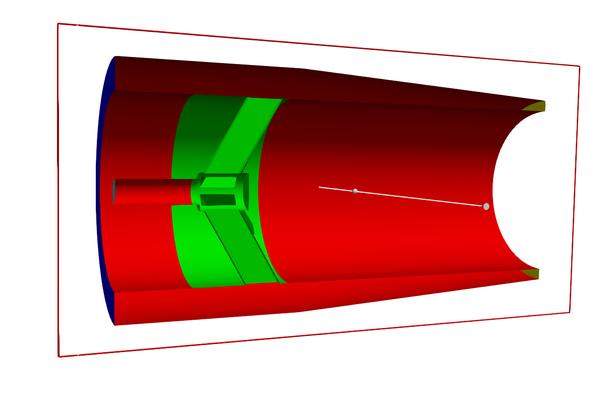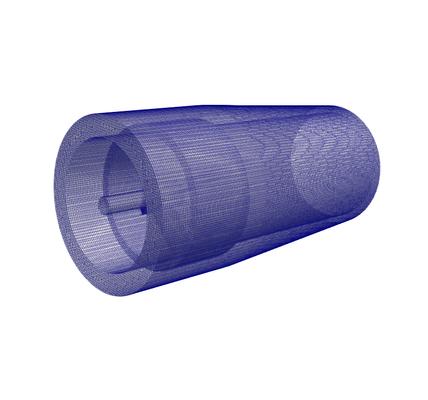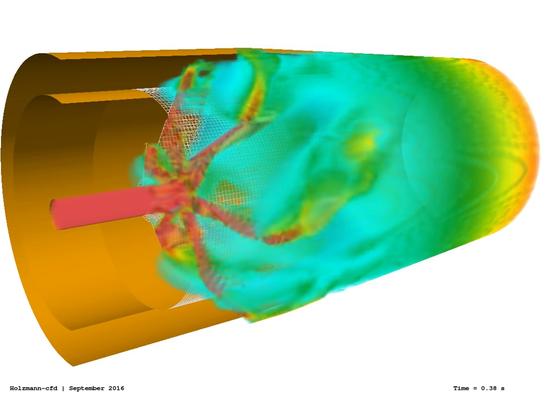Rotating Rotor (AMI)
pimpleFoam, snappyHexMesh, arbitrary mesh interface, dynamic mesh, function objects
Tobias investigated a long time into the arbitrary mesh interface (AMI) boundary condition and thus, into several cases. As dynamic meshes are state of the art for engineering processes, Tobias shares this case in for this particular regard.
This tutorial demonstrates one way to generate the arbitrary mesh interface for a rotating cell zone using the meshing application snappyHexMesh. The central aspect of the case is the meshing procedure. After the mesh is generated, the user can decide if a numerical analysis should be performed or only a mesh motion is calculated. If one is interested in the meshing procedure of such cases, the surface triangulation of the STL files is an essential step for a correct mesh generation. A good surface triangulation is always necessary to achieve reliable meshes using snappyHexMesh. Thank you for reading the material of Tobias Holzmann. Did you know that he had a music band for three years named Menius-Flow once?



Published under the GNU General Public License 3
Over the last ten years, Tobias tried to publish a wide range of different materials related to OpenFOAM® and CFD. You know it much better than he does if the content is worth to be supported. If you want to thank Tobias for the work he did, feel free to tell the community your opinion about the work Tobias Holzmann is doing or you can email your thoughts directly to »
Support the work of Tobias Holzmann
The available OpenFOAM® training cases are tested and built for different OpenFOAM® versions (not distributions) on a Linux machine. During the tests, only the OpenFOAM Foundation version of OpenFOAM® was used. Furthermore, the following software packages are required for most of the training cases: Salome®, ParaView®, and for optimization tasks, one also needs the open-source software DAKOTA®. The OpenFOAM® cases might work with the ESI version of OpenFOAM® but it is not supported. For the OpenFOAM® extend project, the training cases will probably not work as the code diverged too much. Additionally, there is no support for Windows-based and MAC-based OpenFOAM® versions.
This offering is not approved or endorsed by OpenCFD Limited, producer and distributor of the OpenFOAM software via www.openfoam.com, and owner of the OPENFOAM® and OpenCFD® trade marks
Share the work on Your social network
Tobias would be grateful if you share his work on your social network in order to keep the OpenFOAM® community up to date. Furthermore, sharing the work will avoid that people investigate into topics, that are already prepared for your study such as the examples provided by Tobias Holzmann.


